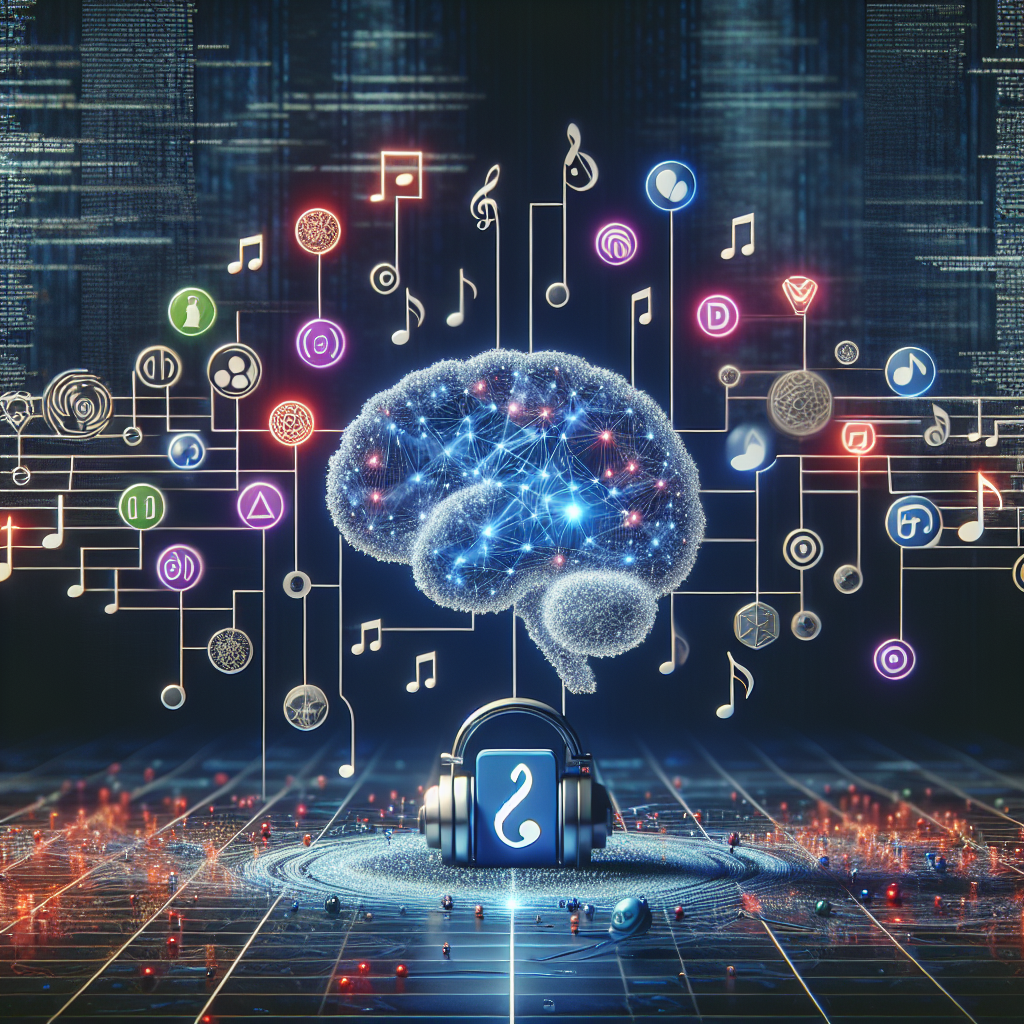In recent years, artificial intelligence (AI) has had a significant impact on the music industry, particularly in the realm of music discovery and recommendation. With the vast amount of music available at our fingertips, AI has become an invaluable tool in helping music lovers find new artists and songs that align with their tastes. This technology has revolutionized the way we discover music, making it easier than ever to explore new genres and artists that we may not have otherwise come across.
One of the most popular uses of AI in music discovery is through streaming platforms like Spotify, Apple Music, and Pandora. These platforms use AI algorithms to analyze user behavior and preferences, creating personalized playlists and recommendations based on listening history and interactions. By leveraging machine learning techniques, these platforms are able to continuously refine their recommendations, making them more accurate and tailored to each individual user.
AI-powered recommendation systems work by analyzing patterns in user data, such as listening history, likes, dislikes, and interactions with the platform. By identifying commonalities between users with similar tastes, AI algorithms can make predictions about what other songs or artists a user might enjoy. This personalized approach to music discovery has revolutionized the way we interact with music, allowing us to explore new genres and artists with ease.
In addition to streaming platforms, AI has also influenced the way we discover music through social media and other online platforms. For example, music recommendation engines like Last.fm and Spotify’s Discover Weekly use AI algorithms to suggest new music based on what users are currently listening to. These platforms analyze user behavior and preferences to create personalized recommendations, helping users discover new music that aligns with their tastes.
Furthermore, AI has also been used to help artists and record labels identify trends in the music industry and predict which songs are likely to become hits. By analyzing data from streaming platforms, social media, and other online sources, AI algorithms can identify patterns and trends that may indicate a song’s potential for success. This data-driven approach to music discovery has helped artists and record labels make more informed decisions about which songs to promote and release.
Overall, the influence of AI on music discovery and recommendation has been profound, reshaping the way we interact with music and helping us discover new artists and songs that resonate with our tastes. As AI technology continues to evolve, we can expect even more innovative approaches to music discovery in the future.
FAQs:
Q: How does AI technology influence music discovery?
A: AI technology influences music discovery by analyzing user data, such as listening history and interactions with the platform, to create personalized recommendations and playlists. This personalized approach helps users discover new music that aligns with their tastes.
Q: What are some popular AI-powered music recommendation platforms?
A: Some popular AI-powered music recommendation platforms include Spotify, Apple Music, Pandora, Last.fm, and Spotify’s Discover Weekly. These platforms use AI algorithms to analyze user behavior and preferences to create personalized recommendations.
Q: How does AI technology help artists and record labels?
A: AI technology helps artists and record labels identify trends in the music industry and predict which songs are likely to become hits. By analyzing data from streaming platforms, social media, and other online sources, AI algorithms can help artists and record labels make more informed decisions about which songs to promote and release.
Q: What are some future trends in AI-powered music discovery?
A: Some future trends in AI-powered music discovery may include more advanced algorithms that can analyze more complex data, such as lyrics and music composition, to make even more accurate recommendations. Additionally, we may see more integration of AI technology into social media platforms to help users discover music through their online interactions.

